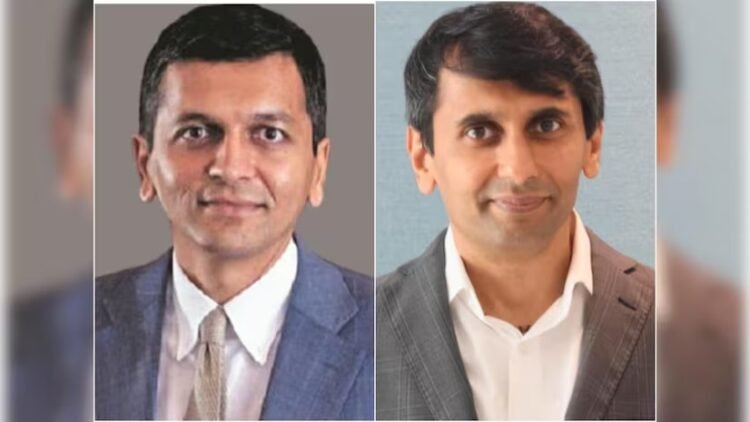The amicable resolution of the Lodha brothers’ trademark dispute is a testament to the power of mediation, clear communication, and familial unity in overcoming corporate challenges.
For CEOs, the case serves as a blueprint for managing brand disputes, leveraging mediation, and strengthening governance.
NEW DELHI (India CSR): In a significant development for India’s real estate sector, brothers Abhishek Lodha and Abhinandan Lodha, prominent figures behind Macrotech Developers and House of Abhinandan Lodha (HoABL), have amicably resolved a high-stakes trademark dispute over the “Lodha” brand. The resolution, achieved through mediation under the guidance of retired Supreme Court Justice R.V. Raveendran, marks the end of a Rs. 5,000 crore lawsuit that had drawn attention to family-run businesses, brand identity, and corporate governance. The settlement clarifies exclusive brand rights, with Macrotech Developers retaining “Lodha” and “Lodha Group,” while HoABL secures “House of Abhinandan Lodha.” This article outlines seven critical facts every CEO should know about this case, offering insights into dispute resolution, trademark protection, and family business dynamics.
Seven Facts Every CEO Should Know
1. The Dispute’s Origins in a Family Settlement
The Lodha brothers’ conflict traces back to 2015, when they decided to part ways professionally. Formalized in a 2017 family settlement agreement, elder brother Abhishek retained control of Macrotech Developers (formerly Lodha Developers), the flagship real estate business founded by their father, Maharashtra minister Mangal Prabhat Lodha. Younger brother Abhinandan pursued new ventures, establishing HoABL, focused on plotted development projects. However, tensions arose when Macrotech alleged that HoABL continued using the “Lodha” trademark, causing market confusion. CEOs should note that even well-documented family agreements can lead to disputes if brand usage terms are ambiguous. Clear delineation of intellectual property rights during business splits is essential to avoid costly litigation.
2. A ₹5,000 Crore Lawsuit Over Brand Identity
In January 2025, Macrotech Developers filed a Rs. 5,000 crore lawsuit against HoABL, accusing it of trademark infringement and seeking a permanent injunction to prevent Abhinandan’s entities from using the “Lodha” name. The suit also alleged forgery, claiming HoABL used fabricated board resolutions and a fake PAN card to secure approvals for company names incorporating “Lodha.” The scale of the lawsuit underscores the financial stakes tied to brand identity in competitive industries like real estate. For CEOs, this highlights the importance of vigilant trademark monitoring and swift legal action to protect brand equity.
3. Bombay High Court’s Push for Mediation
On January 31, 2025, the Bombay High Court, under Justice Arif S. Doctor, referred the case to mediation, appointing former Supreme Court Justice R.V. Raveendran as mediator. The court initially set a six-week deadline, later extended to April 15, emphasizing mediation as a faster, less adversarial alternative to litigation. The successful resolution demonstrates mediation’s effectiveness in complex disputes, particularly those involving family dynamics. CEOs can learn from this approach, opting for mediation to preserve business relationships and reduce legal costs, especially in disputes where public perception matters.
4. Parental Guidance in Resolving Corporate Conflict
A unique aspect of the settlement was the role of the Lodha brothers’ parents, particularly their mother, Manju Lodha. In February 2025, she wrote a letter urging her sons to cease hostilities, clarifying that neither had rights over the other’s business. Statements from both sides credited “parental guidance” for facilitating the resolution, alongside Justice Raveendran’s expertise. This blend of familial wisdom and professional mediation offers a lesson for CEOs of family-run enterprises: combining emotional intelligence with structured processes can bridge seemingly intractable divides.
5. Clear Brand Differentiation Post-Settlement
The mediation agreement establishes unambiguous brand ownership. Macrotech Developers, led by Abhishek, holds exclusive rights to “Lodha” and “Lodha Group,” reinforcing its position as a leading real estate developer. Abhinandan’s HoABL retains the right to use “House of Abhinandan Lodha,” focusing on its distinct plotted development model. Both parties agreed to communicate that their businesses are unconnected, reducing future confusion. CEOs should recognize the value of such clarity in brand strategy, ensuring customers and stakeholders understand corporate identities, especially after business separations.
6. Allegations of Forgery and Corporate Governance
The dispute escalated when Macrotech accused HoABL of forging documents, including board resolutions and an independent director’s signature, to misuse the “Lodha” trademark. HoABL denied these claims, filing a police complaint against unknown parties to investigate the allegations. While the settlement resolves the dispute, the accusations highlight governance risks in family businesses. CEOs must prioritize robust internal controls and transparency to prevent misconduct, real or perceived, that could damage reputation and investor trust.
7. Implications for India’s Real Estate Sector
The Lodha settlement has broader implications for India’s real estate industry, where brand trust drives customer loyalty. By resolving the dispute, the brothers have avoided prolonged litigation that could have eroded confidence in both brands. The clarity in brand usage strengthens Macrotech’s market position and allows HoABL to carve its niche. For CEOs, this case illustrates the need to balance competitive differentiation with collaborative resolutions to maintain industry stability and growth.
Lessons for CEOs: Strategic Takeaways
The Lodha vs. Lodha case offers several strategic lessons. First, trademark disputes require proactive protection, including regular audits of brand usage by related entities. Second, mediation can be a powerful tool for resolving conflicts, particularly in family businesses where relationships are at stake. Third, governance frameworks must evolve to address risks in complex corporate structures. Finally, public communication of dispute resolutions, as seen in the brothers’ joint statements, can rebuild trust and reinforce brand integrity.
The role of Justice R.V. Raveendran and the Bombay High Court underscores the judiciary’s support for alternative dispute resolution, a trend CEOs should embrace to streamline conflict management. Additionally, the involvement of family elders highlights the cultural nuances of Indian businesses, where familial bonds can influence corporate outcomes. By studying this case, CEOs can better navigate the interplay of law, family, and business strategy.
(India CSR)





